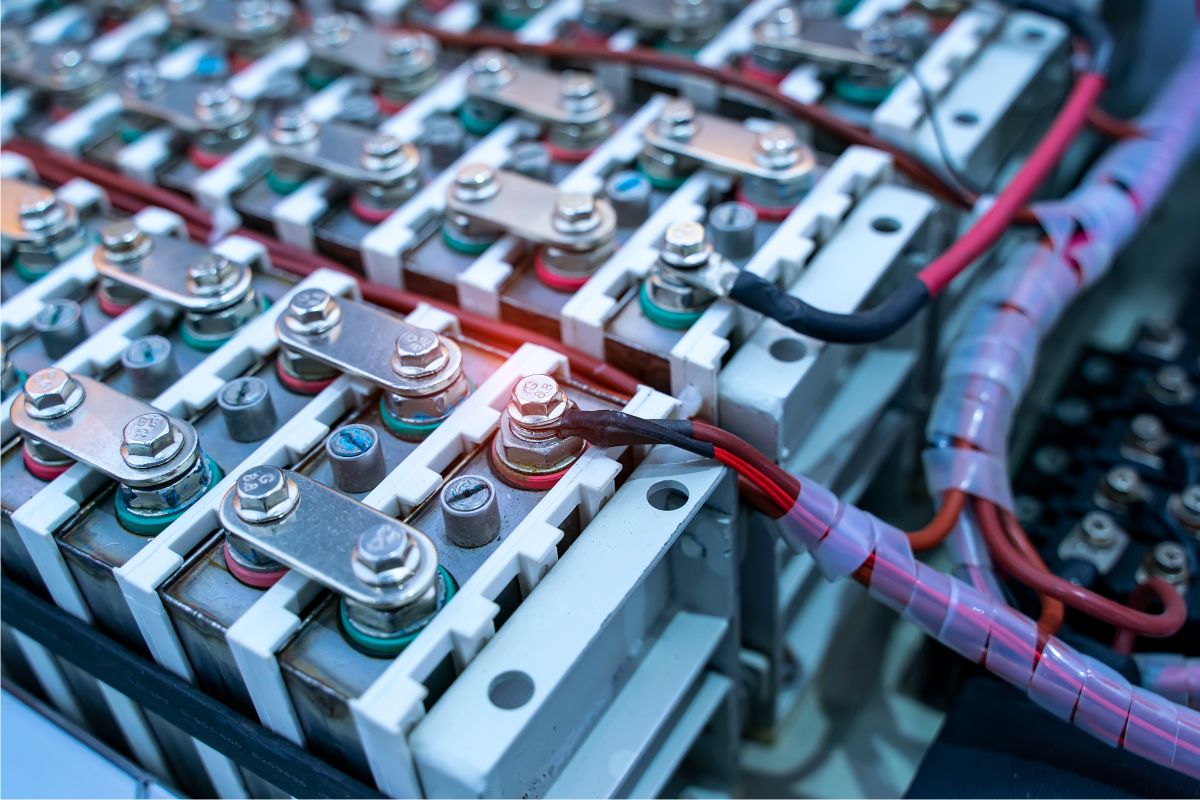Lithium batteries are the right option if you want a safe battery with no toxic elements. In combination with an inverter, a lithium battery is best for those who need to power their electronics on the go because it can provide clean and stable power to various appliances. Inverters are also safe to use and do not emit harmful gases or pollutants, making them an environmentally friendly option.
Lithium batteries are also used as an emergency power backup to overcome power instability problems. It is vital to learn in-depth about their importance and how they work. This article will shed light on all your questions regarding lithium batteries.
Understanding Lithium Batteries
In the 1970s, Stanley Whittingham explored the idea of a portable battery that could recharge. He aimed to reduce fossil fuel use, which led to the invention of lithium batteries.
The chemistry of lithium batteries is based on lithium metal ions. Besides lithium, this battery also consists of nickel, manganese, and cobalt.
They have high density and are lightweight. These batteries come in a variety of shapes and sizes depending on the devices. Lithium batteries have four main components:
- The cathode or positive electrode consists of lithium ions and determines lithium batteries’ voltage and lifespan. It is made of lithium cobalt oxide.
- The anode or negative electrode is composed of carbon, and charges move through the electrolyte and attach to the anode.
- Inside the metal case of a battery consists of an electrolyte made of salt and solvents. This chemical component acts as a bridge for lithium ions to travel from one electrode toward the other.
- The separator separates the anode and cathode. It is a thin sheet of microperforated plastic.
Working Mechanism of Lithium Batteries
While there are numerous lithium batteries, the basic concept behind how they work stays the same. An energy-producing reaction occurs when you plug in a home-inverter attached to a battery. That is referred to as an electrochemical reaction.
Lithium atoms are separated from electrons in the anode during this reaction, travel through an electrolyte, and reach the positive electrode (cathode). Here the lithium ions again combine with their electrons and electrochemically neutralize.
When you turn off the device, the flow of electrons stops, and the battery ceases to discharge rapidly.
Top 3 Benefits of Lithium Battery That You Should Know
Now that you know about lithium technology and how it operates next step is to learn about their advantages and disadvantages. The following are the pros of lithium batteries:
1. Light Weight
Lithium batteries have less weight than traditional batteries because lithium ions are lightweight. They are also environmentally friendly since heavy metals like cadmium and lead are absent.
2. Low Maintenance and High Power
Batteries like lead acid require maintenance, whereas lithium batteries require little or no maintenance. These batteries do not need refills or maintenance to keep them charged for an extended period.
Moreover, they have a higher voltage level that helps them produce more power than other cells or batteries.
Disadvantages of Lithium Battery
Now that you know the advantages of these batteries, learning about the disadvantages can help you to use them correctly.
1. Overheat
Although they can hold high voltages, this can also lead them to overheat and damage the coatings. Rapid heating up can result in ignition.
2. Safety Risks
When these batteries are mishandled, it can cause short-circuit due to high voltage. It is crucial to learn charging methods and how batteries work to stay safe.
Conclusion
Lithium batteries are an essential part of our daily life, and they are durable, lightweight, and provide a power supply for a long time. This battery contains four main components and supplies energy due to the mobility of ions from one electrode to another.
If you want to learn more about lithium batteries and are looking for a suitable one for your device, contact Deltec Batteries today.
Resources
- https://www.energy.gov/energysaver/articles/how-lithium-ion-batteries-work
- https://www.cei.washington.edu/education/science-of-solar/battery-technology/
- https://batteryuniversity.com/article/bu-204-how-do-lithium-batteries-work
- https://www.explainthatstuff.com/how-lithium-ion-batteries-work.html
- https://www.power-technology.com/features/what-are-lithium-batteries-made-of/

